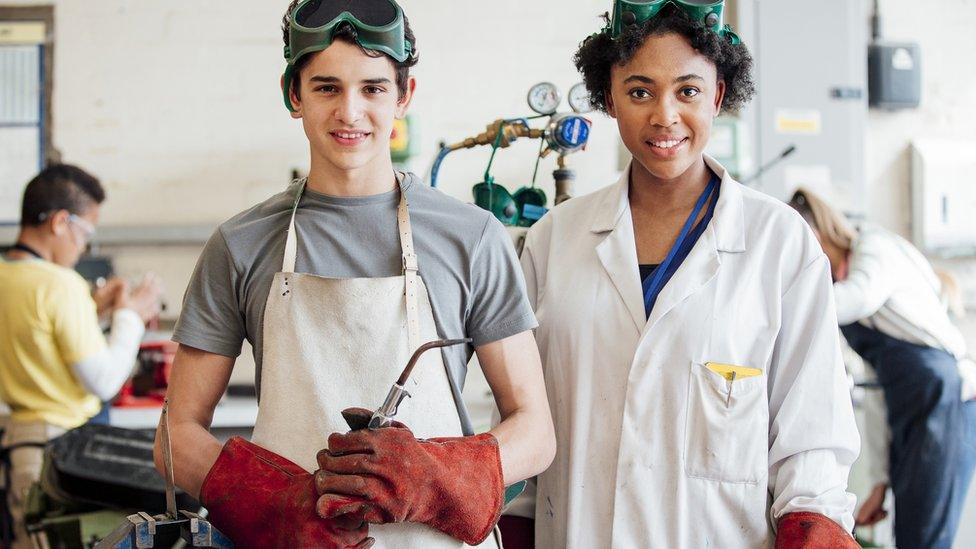Technical schools 'half full and perform less well'
- Published

Technical schools in England have received millions of pounds in public funding but many are half full and get poorer results than other secondary schools, a government watchdog warns.
The National Audit Office (NAO) says university technical colleges (UTCs) are also less likely to be rated as good or outstanding by inspectors.
UTCs see employers and universities jointly providing technical education.
The government says they "play a role in our diverse education system".
Launched in 2010, UTCs are a type of free school and generally teach pupils aged 14 to 19,
They have a focus on giving students a technical education, for example in subjects such as engineering, science technologies and healthcare.
UTCs are publicly funded state schools but they are independent of local authorities - they must be part of an academy trust, which is a charitable company that manages the school's budget and employs the staff.
What did the NAO research find?
The NAO's investigation found between 2010-11 and 2018-19, the Department for Education had spent £792m on the UTC initiative, most of it on capital grants.
A total of 58 UTCs have opened over the past nine years but 10 (17%) have now closed as UTCs, the report says.
The 48 open as of January this year were operating, on average, at 45% capacity.
In total, these schools had 13,572 students, out of a maximum capacity of 29,934, with individual UTCs ranging from 10% to 101% full.
As of August this year, 52% of UTCs were rated as good or outstanding, compared with 76% of all secondary schools, the NAO found.
And there were 4,863 students attending UTCs considered to be inadequate or requiring improvement by Ofsted inspectors.
The report also says UTCs have performed less well than other schools in a number of measures of performance at GCSE level.
A smaller proportion of pupils gain a grade 5 or above in English and maths GCSEs - in 2016-17 and 2017-18, 28% of UTC students reached this threshold compared with 44% of students in all state-funded mainstream schools.
But the NAO does acknowledge 27% of UTC students started apprenticeships, compared with a national average of 6%, and of these, just over half were at a higher or degree level.

Meg Hillier, who chairs the committee of public accounts, said: "£792m has been spent but UTCs are running under capacity, often perform less well than other secondary schools and just under half of those inspected either require improvement or are inadequate.
"UTCs were set up to improve technical education but 17% of UTCs that opened have since closed, leaving hard-pressed local authorities to find alternative places for the students affected.
"This report provides further evidence as to why the Department for Education is my top department of concern."
A spokeswoman for the department said: "We have been clear that the department is committed to ensuring people have access to high-quality technical education across the country.
"UTCs are helping to deliver on that, with 21% of pupils progressing into apprenticeships after completing their post-16 education, more than double the national average.
"As this report recognises, we have taken significant action to support and raise the profile of UTCs to make sure they continue to play a role in our diverse education system and provide the skills that employers need."